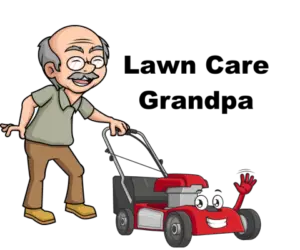Motor oil plays a vital role in the functioning of combustion engines. In addition to lubricating engine components, oil also traps and collects combustion waste products until it is past its shelf life and ready to be disposed of.
Old motor oil should not be used to fertilize your lawn or any grassy area. It is not only not an effective fertilizer, it can actually destroy good microbes and other tiny life in your lawn that grass needs to thrive. The flow of oxygen can also be hindered along with water absorption.
But wait…is there a possibility of “second wind” for your aged motor oil? Are online` rumors of motor oil being an effective lawn fertilizer and more substantiated? What else can old motor oil be used for?
Let’s find out.

Contents
Motor Oil On Grass: What Does Old Motor Oil Do?
When the average person thinks of motor oil, they think of lubrication, dipsticks, oil changes…leaks. It is highly unlikely that lawn fertilization springs to mind. Is there any substance to theories that aged engine oil may be beneficial to the development of a lush and healthy lawn?
Well, let’s start by looking at the makeup and function of motor oil.
Motor Oil Makeup
Modern engine oils are a blend of base oil (derived from crude oil or natural gas) and special additives. According to the Universal Technical Institute, these additives include corrosion inhibitors, viscosity improvement agents, detergents, antioxidants, and friction modifiers. The blend is usually 70-90% base oil and 10-30% additives, depending on the motor oil brand.
This composition allows the motor oil to perform its role in combustion engines of all shapes and sizes. Generally speaking, motor oil is responsible for lubricating engine components that would otherwise grind against each other. This allows an engine to run smoothly, on top of facilitating a long lifespan.
Oil also helps with cooling and minimizing the build-up of acids in engines, which also enables consistent performance. Additionally, oil is responsible for catching and holding on to combustion waste products. This is why engine oil gets progressively darker with time.
Speaking of time, there comes a point when oil is no longer beneficial to an engine. The aging of the oil primarily depends on the number of hours the engine has been running. In cars, for instance, mileage is the primary yardstick for determining when oil should be changed.
If you aren’t keeping track of your hours or mileage, the engine’s performance level is the next best sign that a change is needed. You may notice a decline in power output or even labored engine noises. In extreme cases, the engine may release dark exhaust, a tell-tale sign of your oil’s inability to hold any more combustion waste.
Using the dipstick to drop a bit of oil on a white surface will reveal that it’s time for a change.
Now that we’ve explored the basics of oil, let’s tackle the original question.
What Will Motor Oil Do To Grass?
In this case, the average person is right to not pair oil and grass. Oil and grass do not mix in theory or practice. In fact, oil is harmful to grass, regardless of whether it is old or not. Therefore, it is not a good idea to dump used engine oil on your lawn.
While crude oil does have subterranean roots, the refinement and additives required to convert it to engine oil make it toxic for your lawn’s roots and the soil below. The trapped engine contaminants in aged oil only increase the toxicity.
Pouring oil will, firstly, impede the grassroots’ ability to absorb water. Oil is a very thick substance that can easily form a barrier between roots and the water in the soil. Secondly, absorbing the chemical additives and contaminants in oil will lead to the rapid death of your grass.
Then, there’s the effect on the soil itself.
What Does Old Oil Do To The Soil?
Firstly, the oil will have a negative impact on how your soil absorbs moisture, which will deprive the grass of water. Also, the oil could push away existing soil nutrients which are needed for healthy plant development.
There’s also the issue of oil’s impact on nutrient-producing microbes.
You see, healthy soil is home to hundreds and thousands of tiny organisms (bacteria, fungi, worms, etc.) that help break down organic matter in the soil. The byproducts of this decomposition include nutrients like nitrogen, phosphorous, potassium, and vitamins that are then taken up by the grass.
Exposure to aged oil has a catastrophic effect on these organisms (or microbes). For starters, the thickness of oil can easily deprive these organisms of the oxygen they need to survive, essentially choking them out. Secondly, microbes may ingest the chemical agents and toxins in the oil, which poisons them and halts the production of nutrients that feed your lawn.
So, when the engine oil in your car, lawnmower, etc. goes bad, it is better to find another way to dispose of it. We recommend that you drain the oil into a clear plastic container and take it to an oil recycling facility or even your local gas station.
If you happen to spill a significant amount of oil on your lawn, you will have to dig up the soil on the spill spot. Using a shovel, dig up about 4-6 inches of soil (yes, including the affected patch of grass) and place it into a wheelbarrow. Next, find an appropriate place to discard the oily soil.
You will then have to apply new soil to the spot and re-seed the lawn to cover the bare patch.
To properly collect and dispose of your used motor oil, I recommend this Lumax 15 Quart Drainmaster Drain Pan and Waste Oil Storage.
The Rumor Of Motor Oil Used On Specific Fields
According to unsubstantiated claims, some companies attempted to use the soil’s natural decomposition process to break down elements in pure oil decades ago. This was met with only slight success, even more problems, and if it was ever a practice it is no longer in use.
This was never purported to promote plant growth from this soil, but rather to try and decompose elements within the oil itself. In other words, this was done for the oil, and not for the soil in these fields.
Used motor oils of today as outlined above not only will have debris from engines within, but have additives that are not compatible with soils or plants. If this old, outdated practice actually happened on specific fields, this is not a practice that any homeowner or business owner should try.
Proper disposal for used motor oil is regulated and necessary. All local and state ordinances should be followed during its disposal.
To read more on topics like this one, check out my other articles…
- What Happens If You Don’t Change The Oil In A Lawn Mower?
- What To Know About A Lawn Mower Running Slow And Rough
- Is Too Much Fuel Stabilizer In A Mower Bad? (Answered)
Does Old Motor Oil Fertilize Grass?
As we’ve already discussed above, old engine oil does not fertilize grass at all.
Oil is, in fact, one of the last things you ever want to expose your grass to.
Aged motor oil is a thick, sticky, and toxic substance that inhibits water absorption and poisons the grass and microbes in the soil.
Pouring oil into your soil could also end up poisoning the water supply too, so you should avoid making a habit of this.
Instead, to grow your lawn, you should opt for organic fertilizers like compost and blood meal. You can also use NPK (Nitrogen, Phosphorous, Potassium) fertilizers for an even more direct nutrient boost.
What else can old engine oil be used for?
Although old motor oil is a very bad choice as a fertilizer, it can still find a new lease on life in other areas.
The number one use for old engine oil is to produce…new engine oil!
That’s right, motor oil is highly recyclable thanks to modern technology. Oil recycling plants clean the oil of its contaminants and reapply any lost additives before it is sold on to motor oil companies.
In addition, old engine oil can also be used for:
- Burner oils
- Oil-based lubricants (e.g., bike grease)
- Fence stain
- Flooring finish
The Final Touches On Motor Oil Fertilizer…
Though old motor oil is not a complete waste and burden on the environment as some may claim, it can pose dangers if not handled properly. Recycling it can help the environment and can even be used for things other than engine lubrication.
The final point here is… don’t pour it on your lawn, even it someone says that it is an old practice that can help your grass. It is an outdated and suspect practice even at best and all local and state laws should be adhered to.
If you want to see more about lawn care, I recommend…
- What Happens If You Don’t Change The Oil In A Lawn Mower?
- What To Know About A Lawn Mower Running Slow And Rough
- Is Too Much Fuel Stabilizer In A Mower Bad? (Answered)
References
https://www.ehow.com/how_8760449_clean-up-motor-oil-lawn.html
https://www.gardenguides.com/12522128-can-you-use-old-motor-oil-as-fertilizer.html
